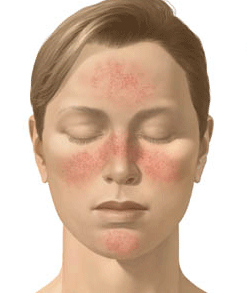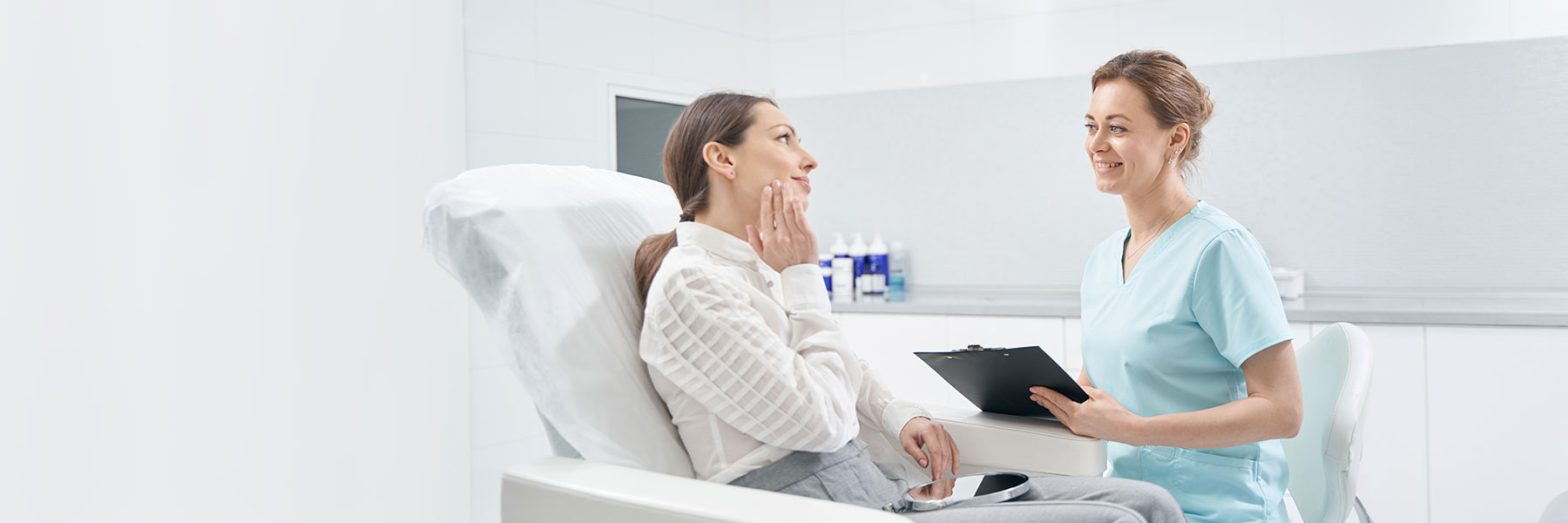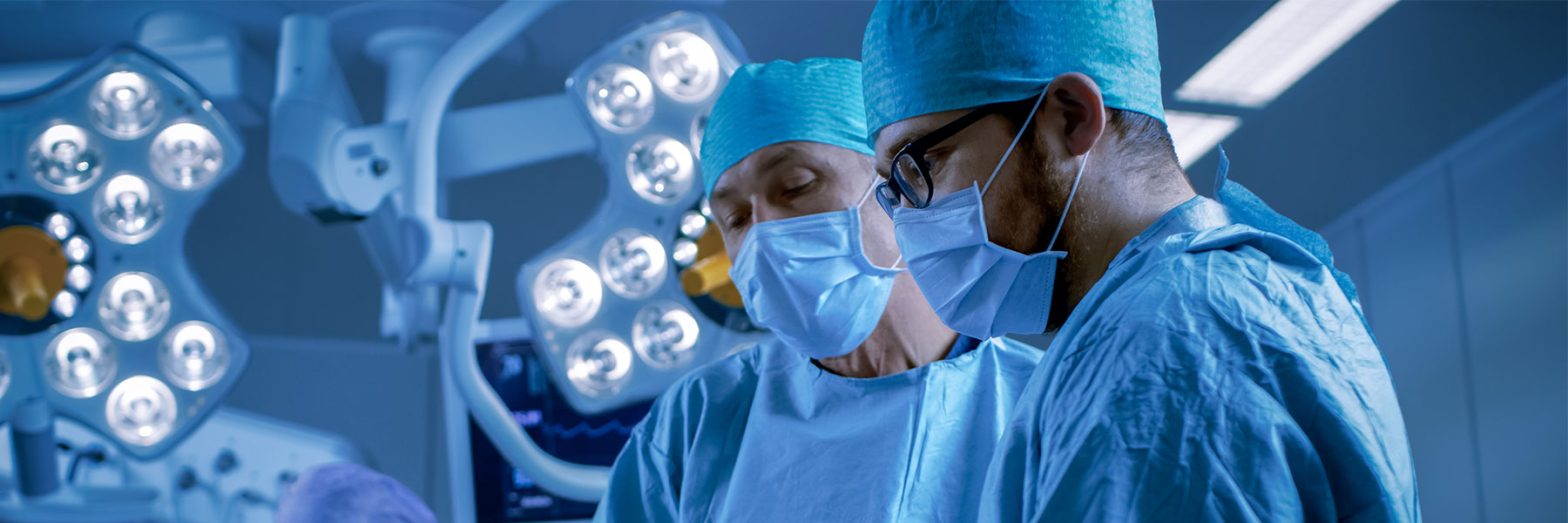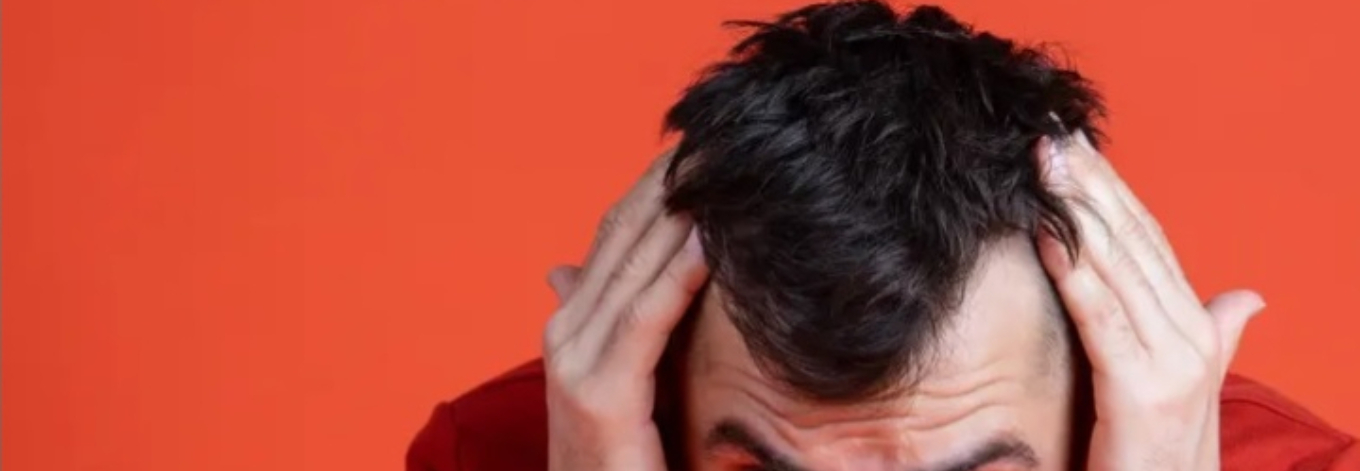
Treatment Guide FAQ: Rosacea
Rosacea is a chronic skin condition. Rosacea is a common rash, typically affecting 40-60 year olds and light skinned people, usually on the face. Rosacea can be diagnosed by a doctor looking at your skin, no tests needed. It is thought to affect up to 1 in 10 people in the UK.

What is Rosacea?
- Can affect the cheeks, chin, nose and forehead
- Symptoms can come and go with varying degrees of severity
- Characterised by persistent redness
- Skin may feel very sensitive, with a burning or stinging sensation
- Also characterised by dilated blood vessels, spots of varying size and small red bumps
- Often more severe with men but more common in women
- May involve inflammation of the eyelids and eyes
- May involve frequent blushing or flushing
- Can be embarrassing, raise anxiety levels and disrupt social lives
- More common in men = nose can become enlarged, red and bulbous (rhinophyma) because of the overgrowth of the sebaceous glands.
What is the cause of Rosacea?
Rosacea unfortunately still mystifies the medical community to some degree. Its cause is not widely established. Some believe it is bacterial (as a few patients respond to antibiotics) while others believe it is a problem with the blood vessels dilating too quickly. Rosacea is not contagious.
Certain lifestyle factors can influence and bring on a degree of Rosacea, including: alcohol; spicy food; exercise; high/low temperatures and stress. These factors are not thought to cause Rosacea but they may exacerbate it. Sunlight exposure can worsen Rosacea.
It is not absolutely clear whether Rosacea runs in the family but it can appear that way for some families.
Can Rosacea be cured?
No but treatments can be very effective with minimal impact on daily life. Different treatments may have different levels of effectiveness for different people. It is always recommended that patients inform and discuss their treatments with the GP. Our experienced team can discuss with you the range of potential treatment options available. Typically we recommend the IPL (Intense Pulse Light) treatment.
Rosacea can become progressively worse over time if left untreated, leaving sufferers with permanent redness and other issues. Early treatment is recommended.
What can you do about it?
- Intense Pulsed Light treatment
- Other treatments available at The Private Clinic may help, including our skin care products
- Other non-surgical and surgical treatments are available, including beta blockers, Isotretinoin tablets and nose surgery
- Protect your skin from the sun
- Review lifestyle factors that may be affecting your Rosacea, e.g. alcohol intake
- Explore cosmetics and how products can help you reduce the visibility of your Rosacea
- Carefully consider all medications you are on in case some aggravate
- Please do not rub or scrub the affected areas as this can make it worse.
- Seek professional skin care advice if in doubt
To find out more about our Rosacea treatment, please contact us on 0333 920 2471 or use our rosacea treatment online contact form.








